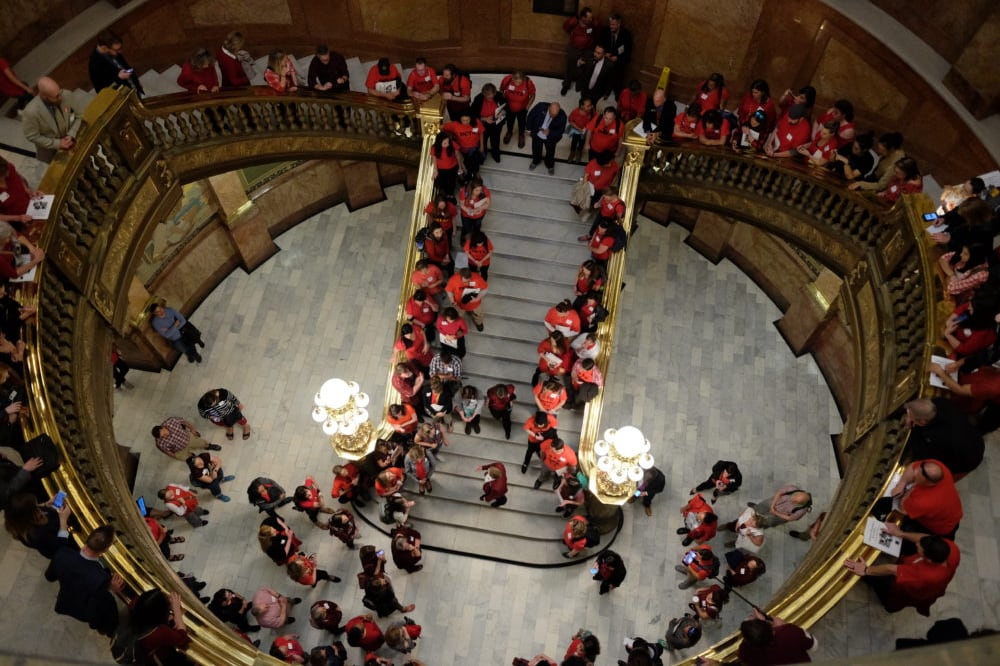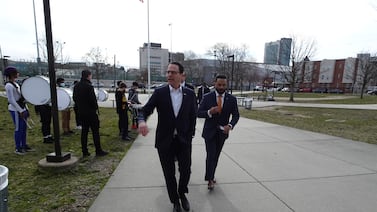A much-anticipated bill that would extend collective bargaining rights to Colorado public sector workers leaves out employees of K-12 school districts and workers at public colleges and universities.
With school districts strongly opposed, K-12 employees were cut out from drafts of the bill that circulated in early April. Gov. Jared Polis, whose support is key, was said to be more open to including higher ed workers, but some of them did not want to support a bill that didn’t include the right to strike.
University of Colorado Boulder adjunct professor Alex Wolf-Root, a United Campus Workers Colorado member, said the higher education union made it clear early in the drafting of the bill that members wanted the ability to strike.
“A bill to expand collective bargaining rights that took away the right to strike would be far worse than no bill,” Wolf-Root said earlier this month. “It would have basically codified the ability for collective groveling and would take away our biggest source of power.”
The bill as introduced Monday extends collective bargaining rights to roughly 40,000 county employees while prohibiting strikes, work stoppages, and work slowdowns. The initial proposal would have covered some 250,000 public sector employees. State employees were granted collective bargaining rights last year.
Colorado Education Association President Amie Baca-Oehlert expressed her disappointment in the bill. She pointed to a recent vote by the board of the New America School charter network to reject a teacher unionization push as a reason why teachers need rights in state law.
While most private-sector workers have the right to unionize under federal law, Colorado public sector workers must rely on voluntary recognition.
“Collective bargaining rights for all shouldn’t be a debate,” Baca-Oehlert said in a statement. “While providing rights to some public workers, such as county workers, is a step forward, we still have a long way to go to ensure that all public workers have basic fundamental rights to form a union and collectively bargain.”
Even in this narrow form, the bill represents a significant expansion of labor rights in a state where they’ve been limited. In a press release announcing the bill’s introduction Monday, sponsors called it “landmark” legislation and an “historic step.”
“County workers who fix our roads, staff our public health departments and protect our communities deserve the right to negotiate for a better future for themselves and their families,” House Majority Leader Daneya Esgar, a Pueblo Democrat, said.
Esgar is sponsoring the bill with Senate President Stephen Fenberg of Boulder and Senate Majority Leader Dominick Moreno of Commerce City. The Democratic leaders have said the bill is a top priority.
Republicans are expected to oppose the bill. As the minority party in both chambers, Republicans can’t just vote it down, but they can slow down this bill’s progress and the progress of dozens of other pieces of legislation still working their way through the process.
The legislature adjourns May 11.
Higher Education Reporter Jason Gonzales contributed.
Bureau Chief Erica Meltzer covers education policy and politics and oversees Chalkbeat Colorado’s education coverage. Contact Erica at emeltzer@chalkbeat.org.







